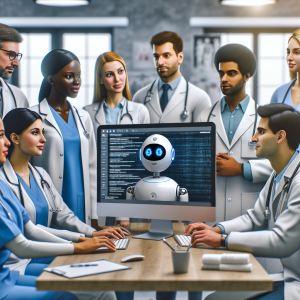How AI Chatbots Revolutionize Care for Physicians

In today’s rapidly evolving healthcare landscape, AI chatbots for physicians are becoming an indispensable tool. These intelligent systems are designed to streamline various aspects of medical practice, from patient interaction to diagnostics and workflow management. By leveraging cutting-edge technology, AI chatbots can assist physicians in providing more efficient and personalized care.
One of the primary benefits of AI chatbots is their ability to handle routine tasks, freeing up physicians to focus on more complex cases. For instance, they can manage appointment scheduling, send reminders, and even provide answers to frequently asked medical questions. This not only improves patient satisfaction but also reduces the administrative burden on healthcare providers.
Moreover, AI chatbots can enhance diagnostic accuracy by analyzing patient data and symptoms to provide preliminary assessments. This can be particularly useful in triaging patients and ensuring that those in need of urgent care are prioritized. Additionally, these chatbots can help in monitoring chronic conditions by regularly checking in with patients and updating their medical records accordingly.
For physicians looking to adopt this transformative technology, understanding its capabilities and limitations is crucial. That’s where our comprehensive courses come in. We offer a step-by-step guide to help you build powerful AI chatbots tailored to your practice’s needs. Learn AI Chatbot Course today and revolutionize your healthcare practice.
Streamlining Patient Interaction with AI
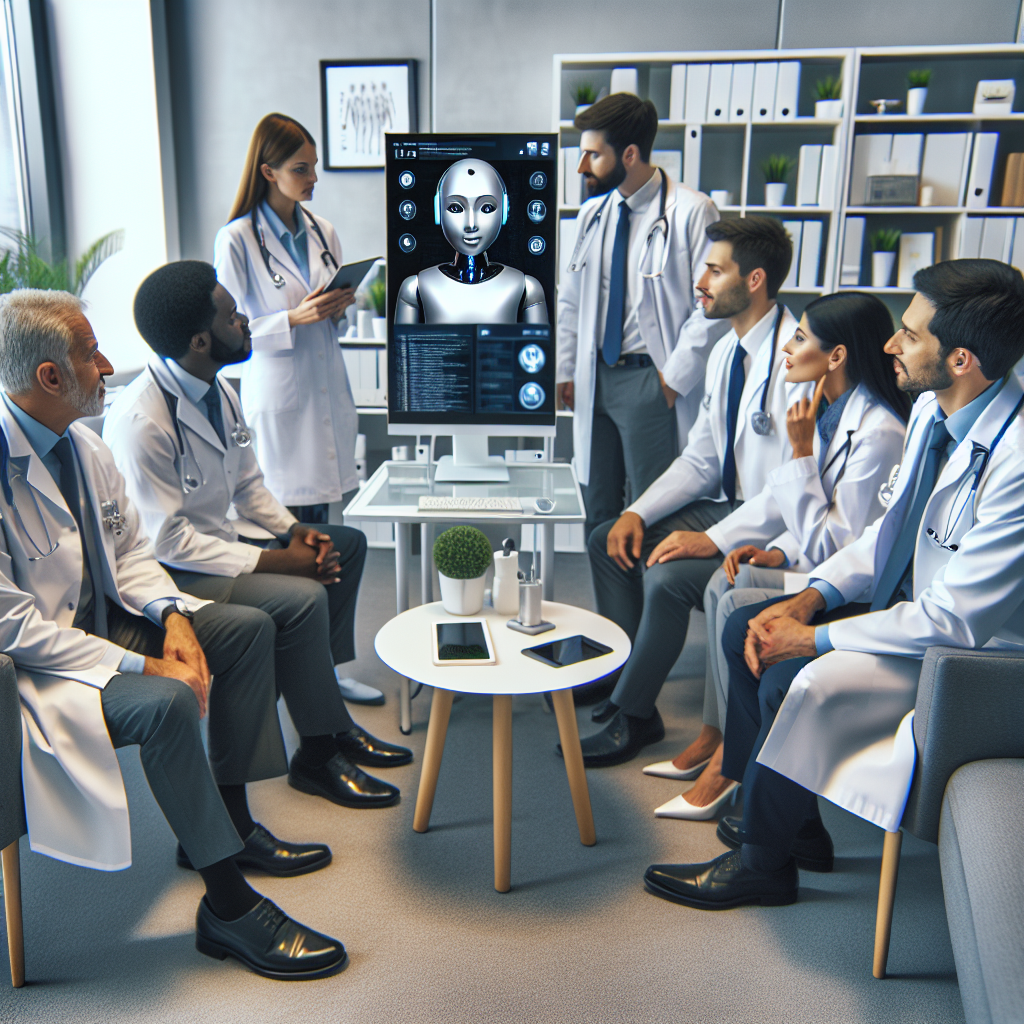
One of the most significant ways AI chatbots for physicians are making a difference is by streamlining patient interaction. Traditional methods of patient communication, such as phone calls and emails, are often time-consuming and inefficient. AI chatbots, on the other hand, offer a more dynamic and responsive way to engage with patients.
These intelligent systems can handle a wide range of tasks, from answering common medical queries to providing instant support in emergencies. For example, a patient experiencing symptoms can interact with an AI chatbot to receive immediate advice on whether to seek urgent care or schedule a routine appointment. This not only saves time for both the patient and the physician but also ensures that patients receive timely and accurate information.
Moreover, AI chatbots can manage appointment scheduling and reminders, reducing no-show rates significantly. Patients can book appointments through a chatbot interface at any time, without the need for human intervention. This 24/7 availability enhances the overall patient experience and ensures that care is always accessible.
In addition, AI chatbots can collect valuable data during interactions, which can be used to personalize patient care. By analyzing patient responses and behavior, these systems can offer tailored advice and follow-up plans. This level of personalization can lead to better health outcomes and higher patient satisfaction.
Overall, by integrating AI chatbots into their practices, physicians can create a more efficient and patient-centric healthcare environment. This technology not only improves communication but also empowers patients to take an active role in their healthcare journey.
Enhancing Diagnostic Accuracy with AI Chatbots
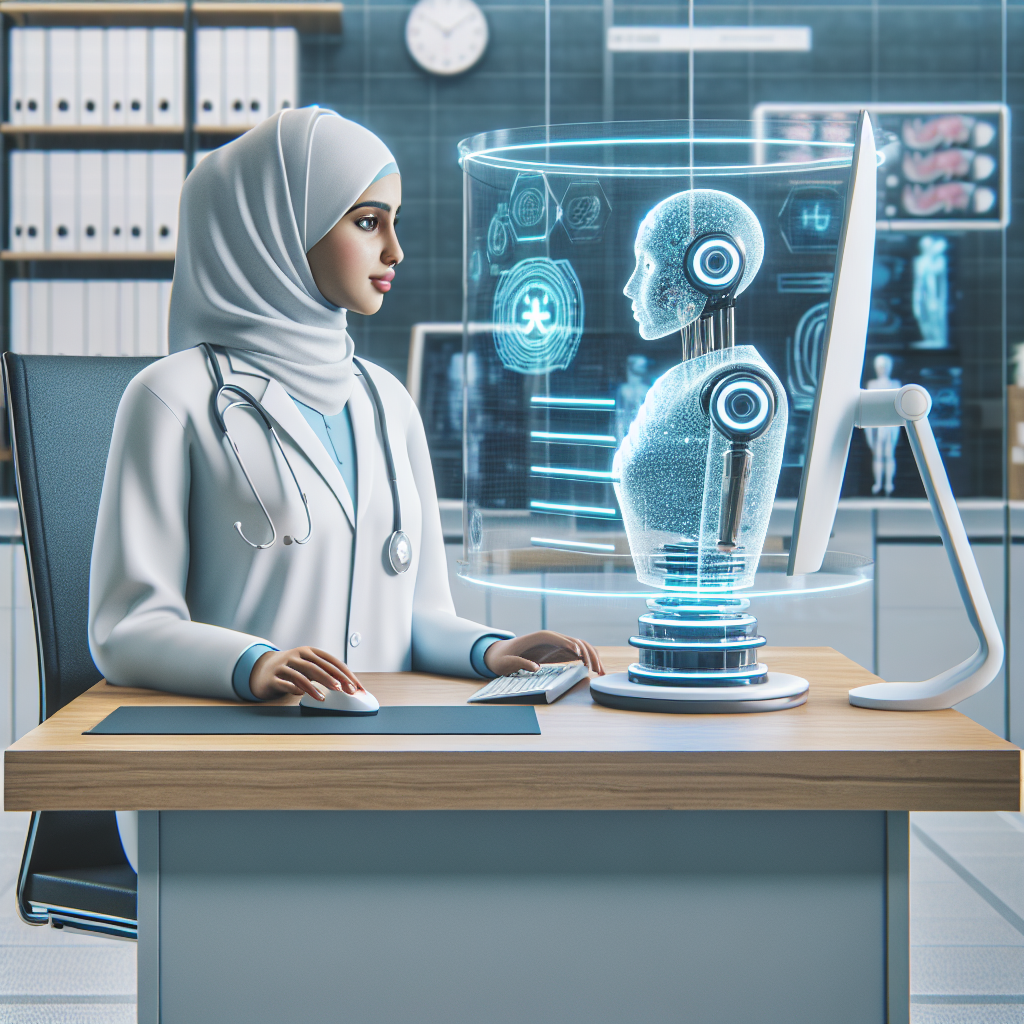
Another groundbreaking application of AI chatbots for physicians is in enhancing diagnostic accuracy. Traditional diagnostic methods often involve a series of manual steps, which can be prone to human error and time-consuming. AI chatbots, however, leverage advanced algorithms and vast medical databases to assist physicians in making more accurate and quicker diagnoses.
AI chatbots can gather detailed patient information through conversational interfaces, asking pertinent questions about symptoms, medical history, and other relevant factors. This data collection is not only efficient but also standardized, reducing the likelihood of oversight. Once the information is gathered, the chatbot can cross-reference it with a multitude of medical records and research studies, providing physicians with data-driven insights.
For instance, if a patient reports a set of symptoms that match a rare disease, the AI chatbot can flag this for the physician’s attention, ensuring that no potential diagnosis is overlooked. This can be particularly beneficial in complex cases where symptoms may overlap with multiple conditions, making it challenging for even the most experienced physicians to pinpoint the exact issue.
Moreover, AI chatbots can continuously learn and improve from each interaction. As they process more patient data, their diagnostic algorithms become more refined, leading to even greater accuracy over time. This continuous learning loop ensures that the technology evolves alongside medical advancements, offering up-to-date diagnostic support.
By integrating AI chatbots into diagnostic processes, physicians can not only increase the accuracy of their diagnoses but also expedite the entire process. This leads to quicker treatment plans and better patient outcomes, ultimately enhancing the overall efficiency and quality of healthcare.
Improving Workflow and Efficiency
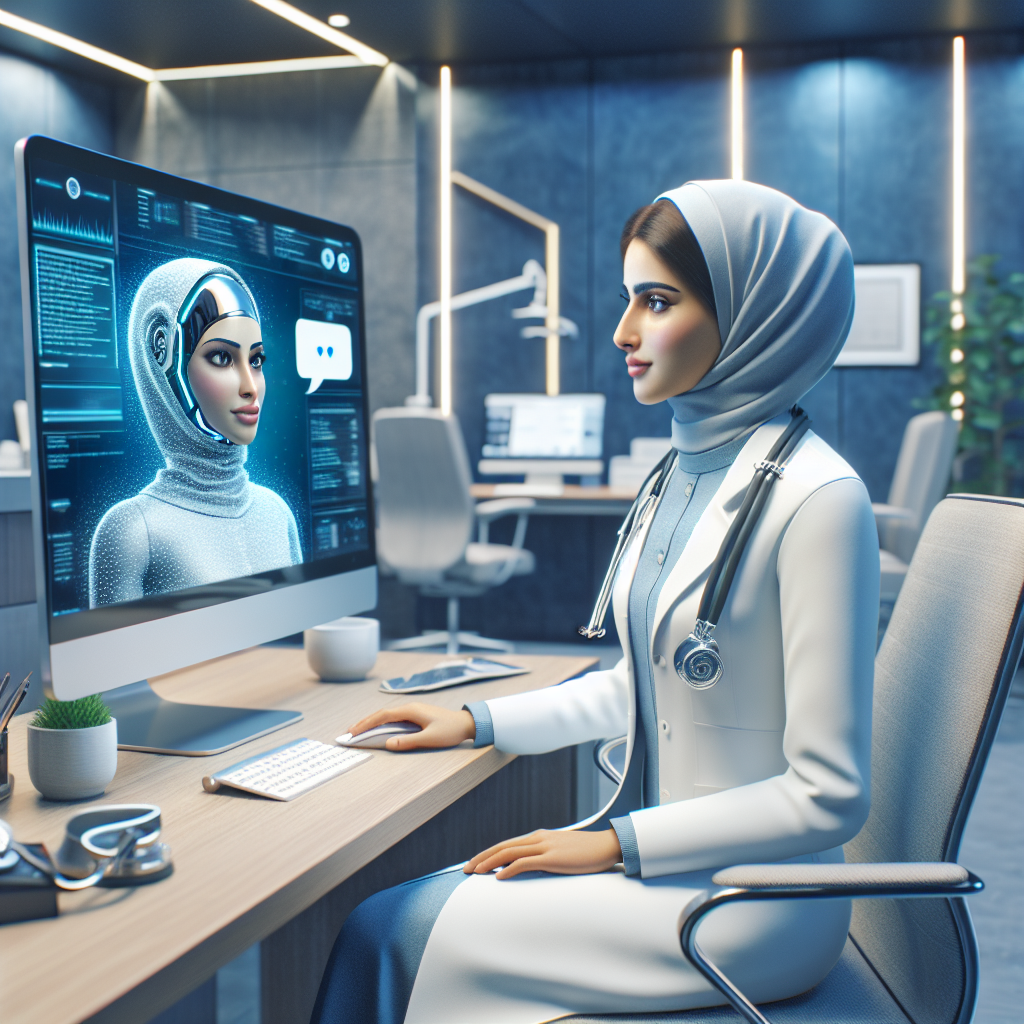
The integration of AI chatbots for physicians significantly improves workflow and efficiency within healthcare settings. One of the primary ways AI chatbots achieve this is by automating routine administrative tasks, freeing up valuable time for healthcare professionals to focus on patient care. Tasks such as scheduling appointments, sending reminders, and managing patient inquiries can be efficiently handled by AI chatbots, reducing the administrative burden on medical staff.
Additionally, AI chatbots can streamline the initial patient intake process. By collecting essential information before a patient’s visit, chatbots can pre-populate electronic health records (EHRs) with accurate and detailed data. This not only speeds up the appointment but also minimizes the risk of data entry errors, ensuring that physicians have access to reliable information when making clinical decisions.
AI chatbots can also improve workflow by facilitating better communication and coordination among medical teams. They can provide real-time updates on patient status, medication schedules, and upcoming appointments, ensuring that everyone involved in a patient’s care is on the same page. This level of coordination is particularly crucial in multi-disciplinary settings where seamless communication can significantly impact patient outcomes.
Moreover, AI chatbots can assist in triaging patients based on the urgency of their needs. By assessing symptoms and medical history, chatbots can prioritize cases that require immediate attention, allowing physicians to address the most critical issues first. This intelligent triaging helps in managing patient flow more effectively, reducing wait times and enhancing the overall patient experience.
The implementation of AI chatbots in healthcare not only enhances operational efficiency but also contributes to a more organized and responsive healthcare system. By automating repetitive tasks and improving communication, AI chatbots enable healthcare providers to deliver higher quality care, ultimately leading to better patient satisfaction and outcomes.
Patient Data Management and Security
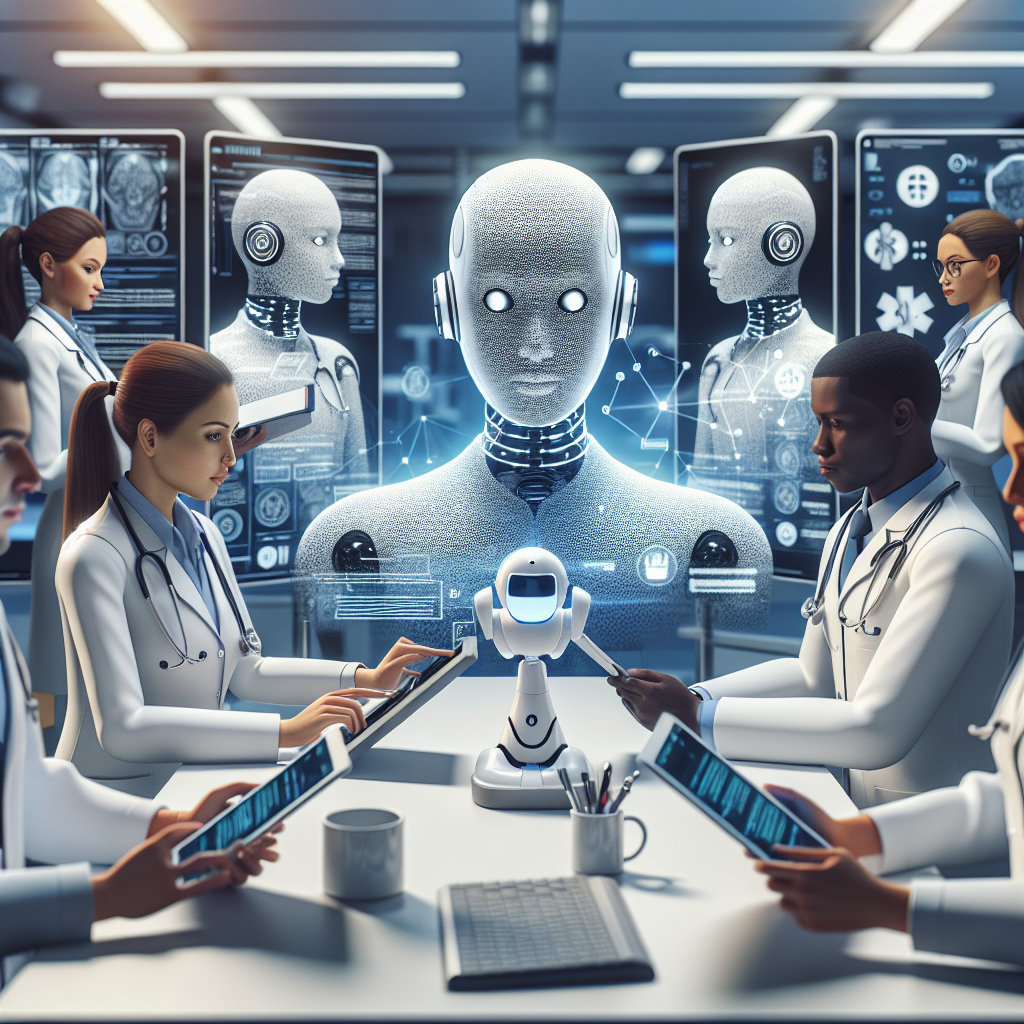
One of the most critical aspects of integrating AI chatbots for physicians is ensuring robust patient data management and security. AI chatbots are designed to handle vast amounts of sensitive patient information, making it imperative that they adhere to stringent data protection standards.
AI chatbots can enhance data management by organizing and storing patient information in a structured and easily accessible manner. This not only facilitates quick retrieval of patient records but also ensures that data is consistently updated and accurate. By leveraging advanced algorithms, AI chatbots can cross-reference new data with existing records, highlighting any discrepancies or areas requiring further attention.
Security is a paramount concern in healthcare, and AI chatbots employ multiple layers of protection to safeguard patient information. These include encryption protocols, secure access controls, and regular security audits to prevent unauthorized access and data breaches. Additionally, AI chatbots are programmed to comply with regulatory frameworks such as HIPAA (Health Insurance Portability and Accountability Act), ensuring that all interactions and data handling practices meet legal requirements.
Moreover, AI chatbots can play a crucial role in monitoring and detecting potential security threats. By analyzing patterns and identifying anomalies in data access and usage, they can alert healthcare providers to suspicious activities in real-time. This proactive approach to security helps in mitigating risks and maintaining the integrity of patient data.
Data management is further optimized through the use of AI chatbots’ natural language processing capabilities. These chatbots can seamlessly integrate with existing electronic health record (EHR) systems, allowing for efficient data entry and retrieval. This integration reduces the likelihood of human error and ensures that patient information is always up-to-date and accurate.
In conclusion, the implementation of AI chatbots in patient data management and security brings numerous benefits to healthcare providers. By ensuring data integrity, enhancing security measures, and streamlining data management processes, AI chatbots contribute to a more secure and efficient healthcare system, ultimately leading to improved patient care and trust.
Future Prospects of AI in Healthcare
The future of AI chatbots for physicians is incredibly promising, as advancements in artificial intelligence continue to revolutionize the healthcare industry. One of the most exciting prospects is the potential for AI chatbots to become even more integrated into clinical workflows, offering real-time support for complex medical decision-making and diagnosis. As these technologies evolve, they could assist in interpreting diagnostic imaging, predicting patient outcomes, and recommending personalized treatment plans based on comprehensive data analysis.
Another area where AI is poised to make significant impacts is in telemedicine. The COVID-19 pandemic has accelerated the adoption of telehealth services, and AI chatbots are expected to play a pivotal role in this transformation. By providing instant responses to patient queries, triaging cases, and even conducting preliminary assessments, AI chatbots can enhance the efficiency and accessibility of remote healthcare services.
Moreover, AI chatbots are likely to become more sophisticated in natural language understanding, enabling them to handle a broader range of patient interactions with greater accuracy. This evolution will be particularly beneficial in managing chronic diseases, mental health conditions, and post-operative care, where continuous monitoring and timely interventions are crucial.
Furthermore, AI-driven predictive analytics can help in identifying public health trends and potential outbreaks. By analyzing large datasets, AI chatbots can offer insights into emerging health threats, enabling healthcare systems to respond proactively. This capability is invaluable in preventing the spread of infectious diseases and managing public health resources more effectively.
The integration of AI with wearable technology is another exciting prospect. Wearable devices that monitor vital signs and other health metrics can feed data directly to AI chatbots, which can then provide real-time feedback and recommendations to patients. This synergy between AI and wearable tech can lead to more personalized and proactive healthcare interventions.
In conclusion, the future of AI in healthcare is filled with opportunities to enhance patient care, improve efficiency, and support medical professionals in their practice. As these technologies continue to advance, the healthcare landscape will be transformed in ways that were once unimaginable. For those interested in riding this wave of innovation, now is the perfect time to learn how to build AI chatbots. Learn AI Chatbot Course today and be at the forefront of this exciting revolution!


